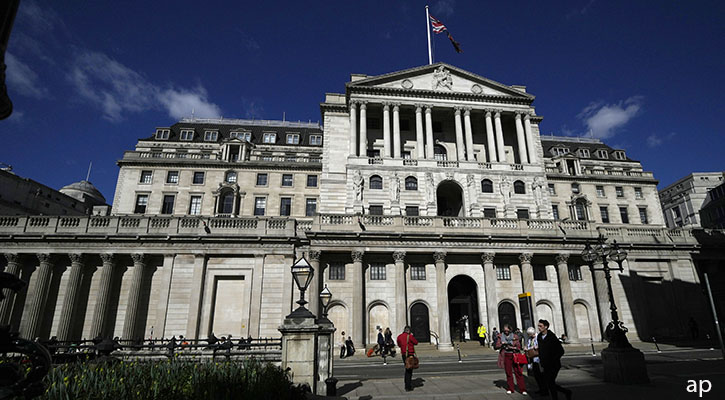
UK inflation hit 7% in March, the highest level for 30 years, official figures showed today.
The news piles further pressure on households, who are paying higher taxes from April and higher energy bills after a price cap on payments was lifted. It also ups the pressure on Bank of England (BoE) policymakers, who are scrambling to contain the surge in living costs via conventional monetary tools.
The Office for National Statistics (ONS) today said fuel prices are one of the main drivers of the inflation rise. The chancellor Rishi Sunak had acknowledged motorists' pain in his spring statement by cutting 5p off a litre of fuel, but the worst could still be to come. March’s inflation figures do not reflect the big jump in energy prices faced by most households from April 1, so next month’s number could be even higher.
The obvious backdrop is the Ukraine war, which is simultaneously pushing up energy and petrol prices, as the West continues to “self-sanction” from Russian commodities. Our analysts think oil prices are likely to remain elevated while the war continues and other sources of supply remain constrained.
Wage Price Spiral
The BoE, which is expected to continue raising interest rates in coming months, forecasts inflation to hit 8% this year before coming down. The Ukraine war is likely to prolong high inflation, however, meaning it will take longer to fall, says Ambrose Crofton, Global Market Strategist at J.P. Morgan Asset Management.
He says the Bank could be tempted to ease off its tightening cycle because the current situation will apply the brakes naturally, especially with consumers tightening belts.
But with the jobs market in good shape, the BoE also fears a 1970s-style wage price spiral, where workers demand ever higher salaries to compensate for rising costs. Lower rates of unionisation in 2022 and a more flexible job market make that much less likely, so in blunt terms, workers have less bargaining power than in the past – unless they change jobs to get a higher salary, a phenomenon apparent during the great resignation of the last two years.
That didn’t stop Bank of England Governor Andrew Bailey making an ill-received warning for workers not to ask for pay rises in the biggest squeeze in living standards in a generation.
“Ultimately, we think the Bank of England will try and strike a balance, raising rates at coming meetings to get policy on a more neutral footing, while keeping a watchful eye on how the consumer is holding up,” Crofton says.
Fortunately for the Bank, there's no April Monetary Policy Committee meeting. The next one is due May 5, giving policymakers longer to study the data.
US inflation figures of 8.5% revealed yesterday grabbed the headlines, but the core inflation rate, which excludes volatile food and energy prices, came in lower than expected.
Consequently, some market observers are calling the peak of inflation already, and with recession being predicted in some quarters, the inflation menace could give way to way to fears over economic growth. There is also the risk of stagflation too, a particularly damaging combination of high inflation and low GDP growth.
Cash Lags Further
In February, we asked platform providers how their clients are reacting to the inflation threat. At that time they appeared sanguine, but the biggest question is whether rising costs are here to stay, what that means for asset allocation (should you buy energy stocks or funds as a hedge?) or whether the continued squeeze on disposable income will force a reduction in ISA saving. This dilemma will no doubt be on financial advisers’ minds as they encourage clients to fill up their entire allowance in the new tax year.
Saving in cash looks even more perilous as inflation leaps ahead, though some providers have been raising their rates in response to the Bank of England rate increases.
Even the best instant access accounts pay between 1% and 2%, but that’s so far behind inflation to make the choice of cash versus equities appear obvious.
That said, Les Cameron, savings expert at M&G Wealth, says those in or approaching retirement may just have to accept the inflation risk to maintain liquid assets to pay for rising living costs. The state pension is rising, but it’s pegged to September’s consumer prices index figure of 3%, so the increase now “looks extremely mean”, says Caroline Abrahams, charity director at Age UK.





























